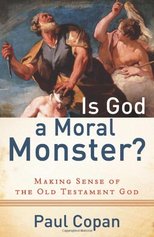 In the first two parts of this rebuttal, I noted that Mr. Copan’s position does not take into account the jumbled chronology of Joshua and Judges. In part three, I would like to draw your attention to the geographical clues in these two books which support the statements that I made in the previous two articles. Mr. Copan’s claim is that Joshua had to be using hyperbole when he spoke of killing all of the people in the land of Canaan. This claim is founded primarily on a single fact. According to Mr. Copan, the very same nations that Joshua claimed to have destroyed are mentioned later as still being in existence, and this can only be explained by concluding that Joshua did not really kill everyone that he said he killed. Thus, Mr. Copan concludes that Joshua was using typical “ancient Near Eastern hyberbole.” I suggested in parts one and two of this rebuttal that the people killed by Joshua had relatives in nearby regions who reclaimed the cities that Israel left vacant during the years following the initial conquest of Canaan. I demonstrated that this fits the chronology of the two battles with the Anakim in Kirjath-Arba. But now, let’s consider whether this suggestion is supported by the geographical portions of the text. Of course, studying geography can often be difficult without a map, so let’s begin by considering a map that I created last night of the land which Joshua conquered.
0 Comments
|
Bill Fortenberry is a Christian philosopher and historian in Birmingham, AL. Bill's work has been cited in several legal journals, and he has appeared as a guest on shows including The Dr. Gina Show, The Michael Hart Show, and Real Science Radio.
Contact Us if you would like to schedule Bill to speak to your church, group, or club. "Give instruction to a wise man, and he will be yet wiser: teach a just man, and he will increase in learning." (Proverbs 9:9)
Search
Topics
All
Archives
June 2024
|


 RSS Feed
RSS Feed